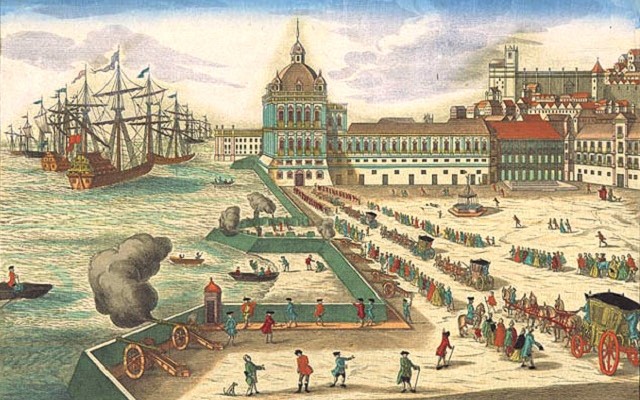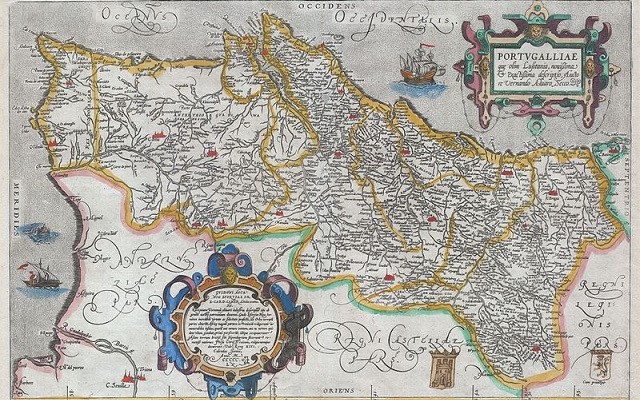
Ancestry Research in Portugal



Over the past 20 years we’ve carried out extensive research on hundreds of families at places like the National Library of Portugal, National Archives of Portugal, and Family History Library in Salt Lake City, USA. Over time, we have gained a wealth of expertise in a wide variety of research areas relating to Portuguese genealogy and family history, and many of the families we’re currently working on are available for review on this site. If you’re looking for assistance with your genealogy project, we’d love to help, as we have extensive research experience in all parts of Portugal, as well as Portuguese-speaking countries and former colonies in Brazil, Angola, Cape Verde, and elsewhere.
Humans have lived in Portugal for the past 35,000 years, as can be seen by the cave paintings and other evidence left behind there. The Iberian Peninsula, where Portugal is located, has been mentioned in historical sources since ancient times, with cities like Braga (16 BCE), Porto (868 AD), and Lisbon (1147 AD) being some of the oldest in the country. With the defeat of the Carthaginians by the Romans in 218 BCE, most of Portugal was incorporated into the Roman Province of Lusitania. After the fall of the Roman Empire in 476 AD, the country was ruled by the Visigoths, who were subsequently replaced by the Moors during the Muslim conquest of Spain in 711 AD. From 722 to 1492, attempts were made to reclaim the Iberian Peninsula for the Catholic Church, with the eventual ouster of the Moors by the Christian monarchs Ferdinand and Isabella in 1492. In the following years, Portugal became a global empire, establishing colonies all over Latin America, Africa, India, and Asia, a legacy which is still felt today. Your ancestors may have played a part in this age-old story, and perhaps left behind important documentation that you can uncover with the help of a professional genealogist.
 Records for Portugal can be found at the National Archives of Portugal and National Library of Portugal in Lisbon. These records include property deeds, court records, newspapers, local histories, military records, family wills, tax lists, biographies, and other types of records. However, many records relating to various regions of Portugal are generally kept separately at the local level at civil registration offices, church parishes, regional archives, and local libraries. However, the most important records for Portuguese genealogy research would be found at the local level, these being civil registration and church records, which would be the primary record types for family history research in Portugal. Civil registration of births, marriages, and deaths officially began in Portugal in 1832. Prior to this date, church parish records would need to be consulted to continue building your tree in Portugal, which are sometimes available dating back to the 1400s and 1500s.
Records for Portugal can be found at the National Archives of Portugal and National Library of Portugal in Lisbon. These records include property deeds, court records, newspapers, local histories, military records, family wills, tax lists, biographies, and other types of records. However, many records relating to various regions of Portugal are generally kept separately at the local level at civil registration offices, church parishes, regional archives, and local libraries. However, the most important records for Portuguese genealogy research would be found at the local level, these being civil registration and church records, which would be the primary record types for family history research in Portugal. Civil registration of births, marriages, and deaths officially began in Portugal in 1832. Prior to this date, church parish records would need to be consulted to continue building your tree in Portugal, which are sometimes available dating back to the 1400s and 1500s.
 If you’d like to learn more about your own family history and are interested in building a high-quality, well-documented tree, we'd love to help. We're passionate about genealogy and would welcome the opportunity to assist you with creating an exciting record of your ancestors that can be enjoyed by your family for many generations to come. Our professional research team can gather records for you in all parts of Portugal, Latin America, Africa, Asia, and former Portuguese colonies. The surnames listed below belong to some of the most noteworthy in Portugal, whose families have been thoroughly documented our site. Please click on the links below to visit some of the pages we've created on these families, which might give you some idea about what we could also achieve for you during a typical Portuguese genealogy project. Our on-the-ground team of researchers, who live in places like Lisbon and the Azores, can help you find your ancestors in Portugal, as well as helping you trace any lineages that may have emigrated from the country to places like the United States, Canada, Brazil, and Australia.
If you’d like to learn more about your own family history and are interested in building a high-quality, well-documented tree, we'd love to help. We're passionate about genealogy and would welcome the opportunity to assist you with creating an exciting record of your ancestors that can be enjoyed by your family for many generations to come. Our professional research team can gather records for you in all parts of Portugal, Latin America, Africa, Asia, and former Portuguese colonies. The surnames listed below belong to some of the most noteworthy in Portugal, whose families have been thoroughly documented our site. Please click on the links below to visit some of the pages we've created on these families, which might give you some idea about what we could also achieve for you during a typical Portuguese genealogy project. Our on-the-ground team of researchers, who live in places like Lisbon and the Azores, can help you find your ancestors in Portugal, as well as helping you trace any lineages that may have emigrated from the country to places like the United States, Canada, Brazil, and Australia.
All rights reserved. No information can be copied or reproduced from this website without the prior consent of the webmaster.